Sonu is the CEO and co-founder of Soneva and Six Senses with his wife Eva and is an environmental pioneer of back-to-nature luxury holidays.
A descendant of Indian Parents, Sonu was born and studied in England with some periods of his education in Nigeria and Switzerland. During his time in Oxford studying English Literature, Sonu met his Swedish-born wife, Eva.
Sonu and wife Eva fell in love with the untouched beauty of the simple way of life in the Maldives. They spent their honeymoon travelling around some of the world’s most exclusive hotels and resorts and decided that they would like to open a resort like no other.
So they leased an abandoned resort on a far-flung 100-acre atoll in the Maldives and set about creating their dream. They then fused their own names ‘Sonu’ and ‘Eva’ together and Soneva was born.
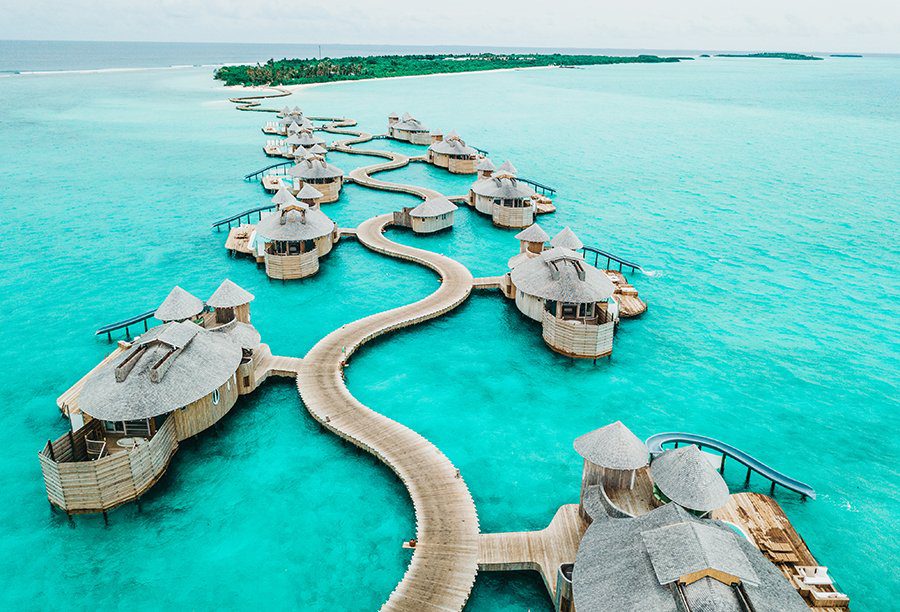
Sonu and Eva have always taken their responsibilities as custodians of the beautiful places in which they operate very seriously. Their unique vision was inspired by nature’s magnitude, mystery and enchanting beauty.
They wanted to develop resorts that would satisfy their desire for a dream destination for those who liked to travel in luxurious style but with a core desire to protect the environment.
Together they conceived a unique philosophy of simple sophistication whilst returning luxuriously to nature. One resort led to another, and Six Senses was founded and sold in 2012.
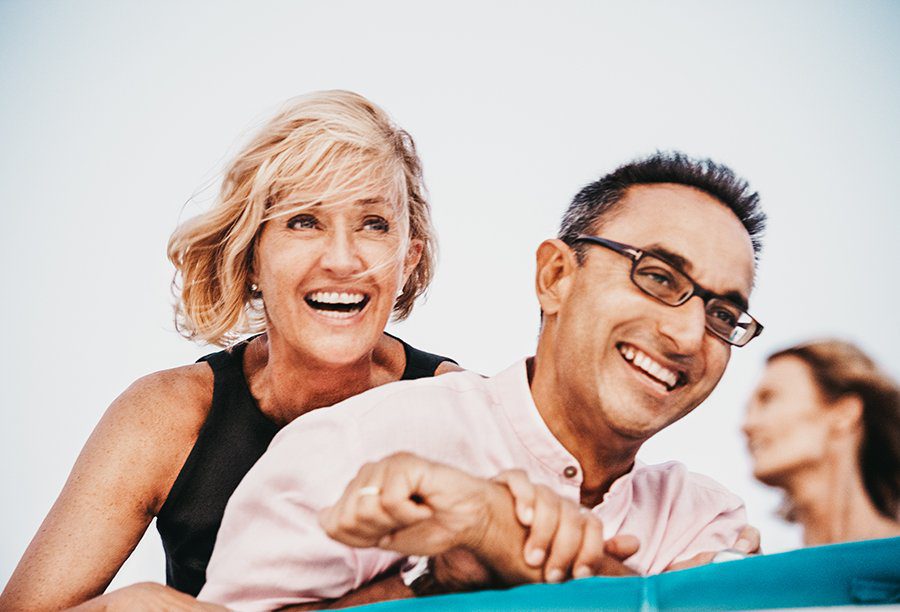
What was it that inspired you to join the travel industry?
Soneva was set up as a consequence of my dream to build an island home for Eva and I. The breathtaking beauty of the stunning Maldivian atolls blew me away.
We found the spectacular deserted island of Kunfunadhoo in Baa Atoll and we knew instantly that we wanted to live there. The only challenge was that the Maldives did not allow foreigners to own private homes.
To overcome this challenge the only solution was to set up a resort. It was not done overnight though.
We met with a lot of scepticism in our quest to build our dream. For one, my family thought I was mad given I had no experience in the hospitality industry.
We also faced challenges to get funding for the construction. One of the reasons for this was that we refused to build hundreds of rooms and aim for the low-end mass market, which was the norm in the Maldives at that time.
We didn’t just want to offer a product that served tuna in tin-cans and relied on volume.
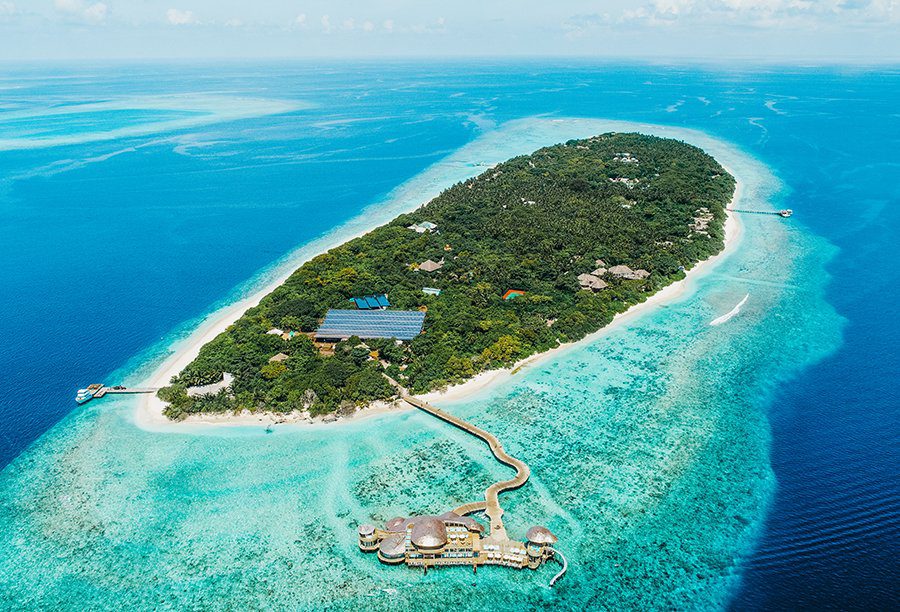
Instead, we opted to build a limited number of villas – 42 initially – despite being situated on one of the largest islands in the Maldives. Additionally, we built a spa, which was also unusual at that time. Today, you would be deemed crazy if you didn’t include a spa in a resort development.
It took a good four years to raise the funding but in 1995 we finally opened Soneva Fushi. Our focus on low volume, high quality and our high-end clientele was a conscious decision. What attracted us to the Maldives was its natural beauty and we knew that to preserve that, we needed to limit the number of people coming.
I strongly believe that combining luxury and sustainability is the right business model and that when done right is the most successful business model. However, I had no idea then that our intensely personal vision of a locally crafted villa and environmentally responsible lifestyle would form the basis of such a successful collection of world-class resorts.
But that’s exactly what happened.
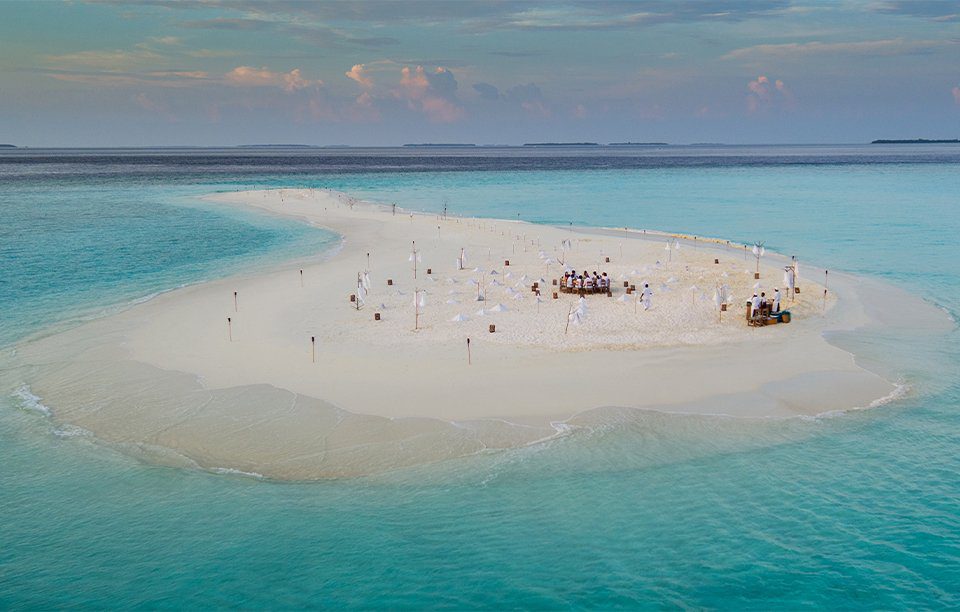
Soneva Fushi was the first ‘castaway’ resort in the Maldives, pioneering a trend for back-to-nature luxury holidays. What we also didn’t realise was that our decision helped transform the Maldives from a three-star high volume destination into the luxury destination it is today.
As you know I didn’t have any hotel experience before starting Soneva. I think it’s interesting that an absence of hotel school/training and experience has been the hallmark of some of the most successful visionary hoteliers.
Isadore Sharp (Four Seasons founder) was an architect/developer who ended up with a motel that he could not sell and had to run it himself while Adrian Zecha (Aman Hotels) was a writer at one of the Asian weekly economic magazines, etc.
So it seems that quite often not coming from the hotel industry allows you to bring a fresh set of eyes and perspective.
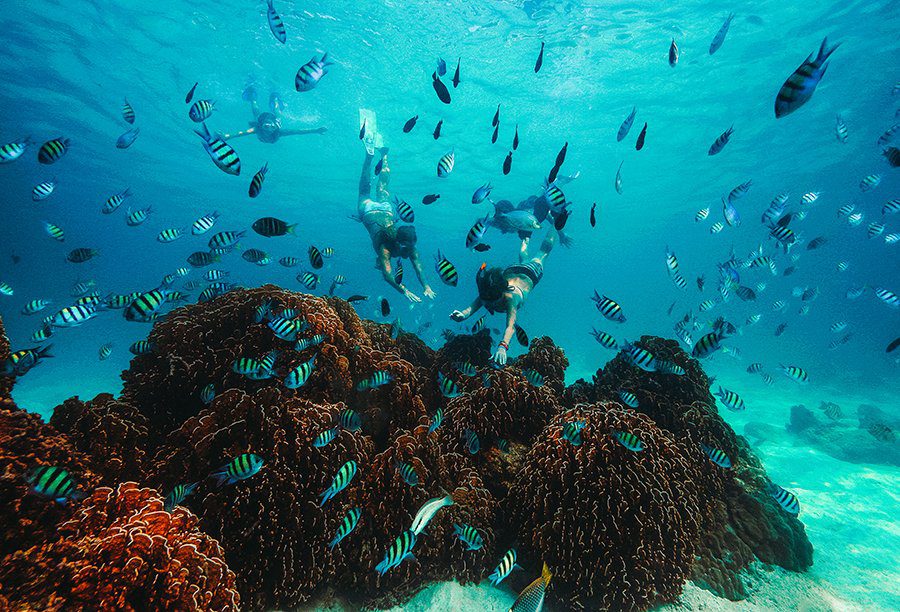
What concerns you about the long term impact of travel on people, animals and the planet?
Global warming is the big environmental issue. My major concern is that we have touched the danger zone for 4 out of the 10 planetary boundaries.
If you are not familiar with the planetary boundaries, I highly recommend a TED talk by Johan Rockstrom from the Stockholm Resilience Centre where he explains this.
There is no doubt that whist air travel accounts for a small proportion of greenhouse gases (for example, they are a fraction of the greenhouse gases caused by the beef industry) the impact of air travel on the carbon footprint of an individual is disproportionately high. So, it is fair to be concerned about travel and I can appreciate the “staycation movement.”
That said, whilst air travel does add considerably to the ecological footprint; travel and tourism have had an incredibly positive impact in conservation.
If it were not for travel and tourism, a lot of the fantastic game parks and conservation areas in Southern and East Africa would have been converted to farms and the various animals there living happily in that area would have been driven to extinction. The tourist dollar has paid for the conservation of that very important ecosystem.
Our experience in the Maldives is similar. Travel and tourism have resulted in the government banning the killing and sale of turtles and turtle products as well as sharks and shark fins.
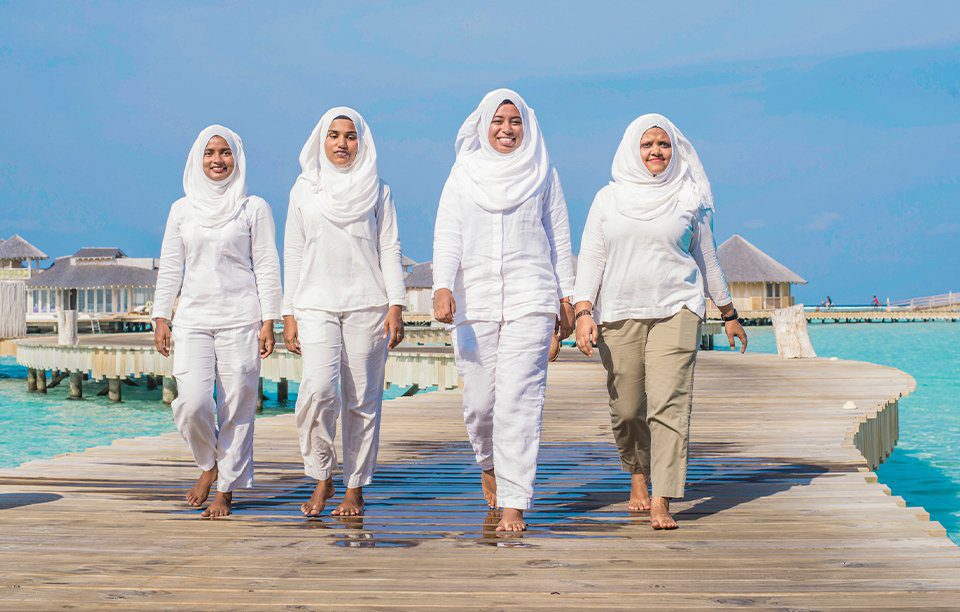
Do you think travel can change the world?
I think travellers need to be quite conscious about where they go on holiday and how they spend their money.
I always believe that businesses must be a positive force for change, so if you support businesses that create jobs in their communities and protect the environments in which they operate, this can be very beneficial.
I gave some examples above where conservation has flourished thanks to tourism. There are many other examples, so these are not opposites. Just like sustainability, at Soneva we believe that luxury and sustainability don’t compete; they complement each other.
Businesses must find ways of operating ethically and responsibly, and equally, consumers and guests should support businesses that are doing the right thing.
“At Soneva we believe that luxury and sustainability don’t compete; they complement each other.”
Sonu Shivdasani
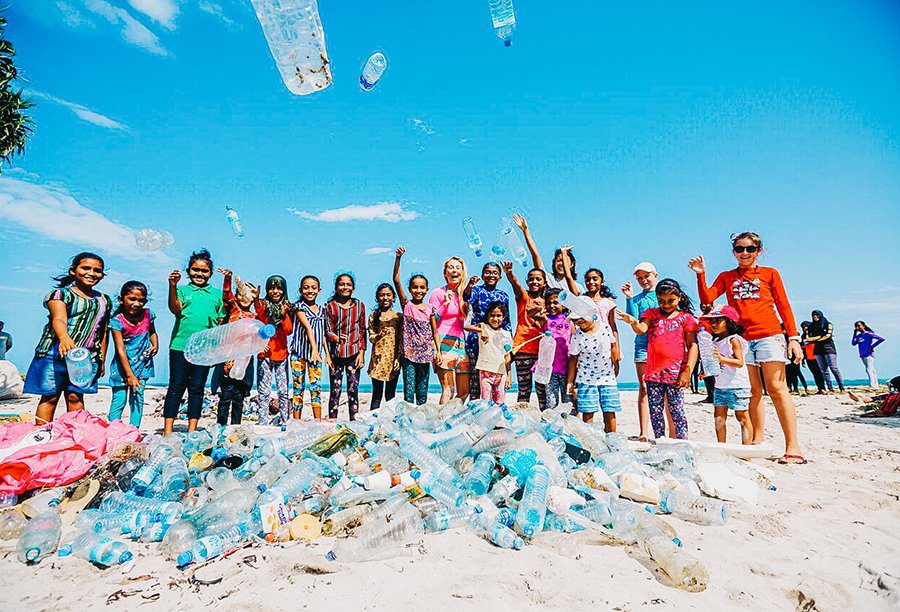
Are you seeing positive change happening in responsible and sustainable travel?
I would say it’s 50:50. Our loyal Soneva Enthusiasts certainly do.
They are very impressed by their experience with us; whether it’s the fact that we have banned branded water, that we are still the only hotel group to have a mandatory environmental levy that has raised more than US$7 million for the Soneva Foundation’s carbon offsetting projects, that we recycle 85% of our waste and some of the innovative things we do there.
The fact that so many of the ingredients that they eat are grown on the island or sourced locally, our responsible food and no-no list, etc. That said in certain new markets, people still think to themselves, “Well, if it’s sustainable it cannot be luxurious.”
This is why we play down our Slow life Core Purpose to the guest and instead focus on our brand proposition of, “Inspiring a lifetime of rare experiences.”
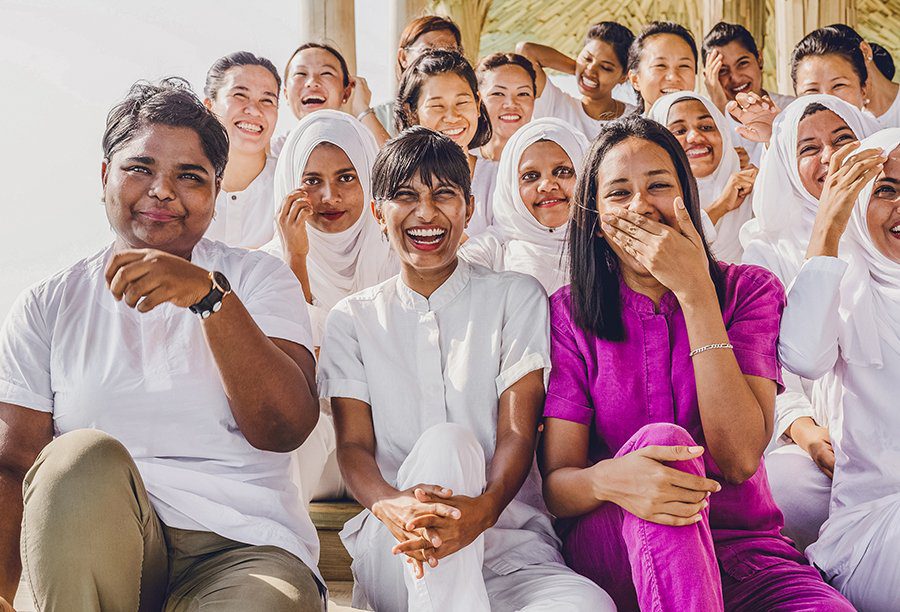
What advice would you give to people wanting to travel more responsibly?
Eat locally, support local producers and businesses that work with their communities, take your rubbish back home with you, don’t wrap your suitcase in plastic, take nothing and leave only footprints
Find out more: soneva.com
How can you travel to change the world?
Congratulations! By reading this post and taking some of these insights on board, you’ve already made a difference.
Now you can easily create your own impact by sharing your new-found knowledge. Share this link to a friend who you think would be interested or post it on your own social media.
Ultimately, it all comes down to staying curious, keeping yourself up-to-date and making yourself accountable for your actions on your travels.